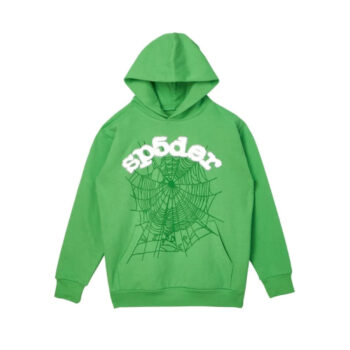Sustainable Fashion: A Holistic Approach
The global fashion industry is undergoing a profound transformation as it steers towards a more sustainable future. Visit now Sp5der hoodie In recent years, the call for eco-friendly practices and ethical production has intensified, prompting both consumers and industry leaders to rethink traditional approaches. This shift towards sustainability is not just a trend; it’s a fundamental change that reflects a growing awareness of environmental and social responsibilities.
Sustainable fashion encompasses a holistic approach that considers environmental impact, ethical sourcing, and social responsibility. It goes beyond creating aesthetically pleasing garments; it’s about embracing a lifecycle approach to fashion. From raw material selection to manufacturing processes and end-of-life disposal, each stage is evaluated for its ecological and ethical footprint.
Eco-Friendly Materials
Fashion brands are increasingly turning to eco-friendly materials to reduce their environmental impact. Fabrics made from organic cotton, bamboo, and recycled polyester are gaining popularity. These materials not only minimize the use of harmful chemicals but also contribute to reducing waste.
Ethical Sourcing and Fair Labor Practices
Sustainability extends to the sourcing of materials and the treatment of laborers in the production chain. Fashion houses are now prioritizing fair labor practices, ensuring that workers involved in the production of garments are treated ethically and paid fairly. This commitment to social responsibility resonates with conscious consumers seeking products with a positive impact.
The Consumer Shift: Mindful Choices
Consumers are becoming more discerning in their purchasing decisions, favoring brands that align with their values. The rise of the conscious consumer has pushed fashion companies to reevaluate their practices and communicate transparently about their sustainability efforts. As the demand for eco-conscious fashion grows, brands that prioritize sustainability are gaining a competitive edge.
Educating Consumers
In this era of information, educating consumers about the environmental and social impact of their choices is crucial. Sustainable fashion brands are not just selling products; they are telling a story. Through effective communication, they are fostering a deeper connection with consumers who appreciate the transparency and authenticity of brands committed to positive change.
Technological Innovations in Sustainable Fashion
Advancements in technology are playing a pivotal role in enhancing sustainability within the fashion industry. Check it now https://corteizclothings.us/ From 3D printing of garments to blockchain for supply chain transparency, innovative technologies are revolutionizing traditional practices.
3D Printing
3D printing has emerged as a sustainable alternative to traditional manufacturing methods. It allows for precise production, reducing material waste significantly. Additionally, it enables customization, leading to a more efficient and sustainable production process.
Blockchain for Transparency
Blockchain technology is being adopted to create transparency within the fashion supply chain. This ensures that consumers can trace the journey of a garment from its origin to the retail store. This transparency not only builds trust but also holds brands accountable for their sustainability claims.
Challenges and Opportunities
While the fashion industry’s shift towards sustainability is commendable, it is not without challenges. Balancing economic viability with ethical practices, overcoming resistance to change, and navigating complex global supply chains pose significant hurdles. However, these challenges also present opportunities for innovation, collaboration, and the emergence of new business models.
Collaborative Initiatives
Industry-wide collaboration is essential for driving systemic change. Collaborative initiatives involving brands, manufacturers, and consumers can amplify the impact of sustainable practices. By sharing best practices and collectively addressing challenges, the industry can progress towards a more sustainable future.
Circular Fashion Economy
The concept of a circular fashion economy is gaining traction. It involves designing products with longevity in mind, promoting repair and recycling, and minimizing waste. Brands embracing circularity are not only reducing their environmental footprint but also creating a closed-loop system that minimizes resource consumption.
Conclusion
The fashion industry’s paradigm shift towards sustainability is a positive and transformative journey. Brands that prioritize environmental and social responsibility are not only contributing to a healthier planet but are also meeting the evolving expectations of conscious consumers. As the fashion landscape continues to evolve, embracing sustainability is not just a choice but a strategic imperative for long-term success.




